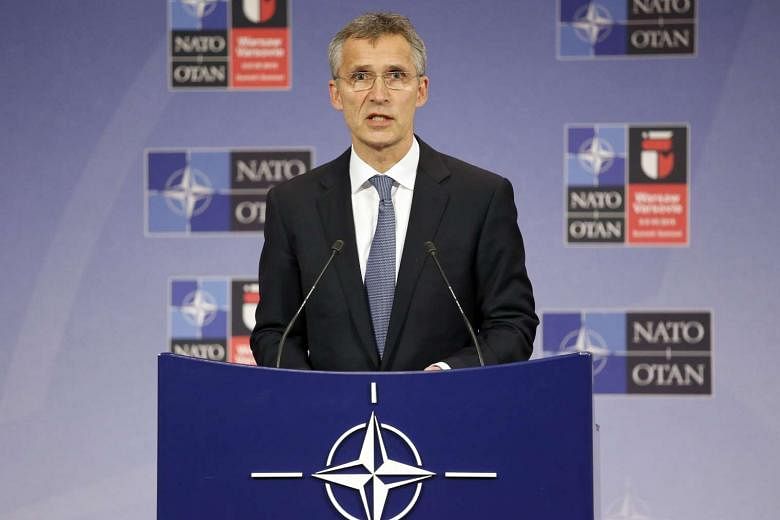BRUSSELS (AFP) - Nato chief Jens Stoltenberg on Wednesday (June 15) demanded that Russia withdraw its forces and military hardware from Ukraine, and halt its support for pro-Moscow separatists battling Kiev.
"Russia needs to stop supporting the militants and withdraw its forces and military equipment from Ukrainian territory," Stoltenberg said after a meeting of Nato defence ministers with their Ukrainian counterpart in Brussels.He said the US-led alliance would continue to stand by the government in Kiev and would never recognise Russia's "illegal and illegitimate annexation of Crimea" two years ago.
"In response to Russia's actions, Nato has stepped up its support for Ukraine. Our level of political and practical engagement since 2014 is unprecedented," he said.
Stoltenberg said Moscow continued to support the rebels in many ways, supplying equipment and advisors while it massed troops along the border with Ukraine to intimidate Kiev and built up its military presence in Crimea, home base for its key Black Sea fleet.
He also called on Moscow to respect and help implement the Minsk ceasefire accords it signed up to between the rebels and Kiev but which were being violated "over and over again."
The Minsk accords - named after the Belarus capital where they were signed - were the only way forward to a peaceful solution to the conflict, he added.
Stoltenberg was speaking as defence ministers from the 28 Nato member states finalised the details of the biggest alliance revamp since the end of the Cold War, largely in response to the Ukraine crisis and what it sees as a more aggressive Russia.
Many in Nato felt the alliance had become complacent in the years after the fall of Communism and was caught napping by the speed and effectiveness of Russia's intervention in Ukraine.
To counter this new threat, Nato has agreed to boost its readiness and increase resources so that it is better able to respond in case of any repeat.
The defence ministers earlier approved deployment of battalions to the three Baltic states and Poland to deter Russia and reassure allies once ruled from Moscow that Nato will stand by them come what may.
Nato leaders will formally endorse the alliance overhaul at a July 8-9 summit in Warsaw, Poland, which has been amongst those pushing hardest for a tough line with Russia.
The Warsaw summit will be hugely symbolic as the Polish capital gave its name to the Soviet-era Warsaw Pact, Nato's military adversary for nearly 50 years up until the fall of the USSR.

